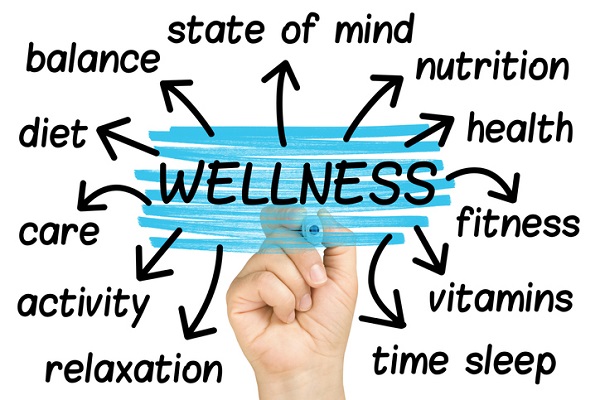
All over the world, wellness is a growing field. In fact, the Global Wellness Institute has determined that “The industry grew by 6.4 percent annually from 2015–2017, from a $3.7 trillion to a $4.2 trillion market, nearly twice as fast as global economic growth” (Global Wellness Institute, n.d.).
Working within this field, wellness counsellors have an important role to play. By helping clients improve their physical, emotional, mental, and spiritual wellbeing, a wellness counsellor helps to improve various aspects of a client’s life, including their health, goals, relationships, and habits (Monroe, 2019).
For many, the potential offered by the growth of the wellness industry can make this career especially attractive. However, a desire to join an expanding field is not enough for someone to succeed as a wellness counsellor. It takes thorough training and a passion for helping others to succeed in this role. Continue reading to learn more.
Wellness Counsellors Must Understand the Dimensions of Wellness
There may not be a consensus on what truly defines “wellness” (Roscoe, 2009), but researchers have posited theories as to how it can be broken down. For example, some have broken wellness down into eight or nine components: social, physical, spiritual, emotional, psychological, intellectual, environmental and occupational (and sometimes financial) (Roscoe, 2009). Yet while wellness may be understood through a variety of different lenses, what is perhaps most valuable is the realization that each dimension of wellness is important, and that addressing all of these aspects is essential.

At Rhodes Wellness College, students focus on the following four dimensions of wellness: physical, mental, emotional, and spiritual. They complete courses in each of these dimensions, so as to be prepared to help clients with all aspects of their wellness. Courses focus on topics such as how to express and take ownership of feelings, articulating issues from the past, identifying cognitive distortions, cognitive therapy, non-violent communication, and improving students’ understanding of an optimal physical lifestyle—to name just a few.
It’s Important to Be a Fantastic Communicator When You Become a Wellness Counsellor
To work as a wellness counsellor, it’s important to have a natural desire to help others. Once you become a wellness counsellor, this quality will help you connect with clients and make a difference in their lives (“Is Becoming a Wellness Coach for You?”). Additionally, skills such as the ability to work independently and collaboratively, having a high capacity for critical thinking, and great problem-solving skills are also valuable to have in this field (“How to Become a Wellness Counselor”).
However, among the most essential skills of all are listening and communication skills. This is particularly important when you consider how poor communication can lead to complaints from the client or misunderstandings (Rimmer, 2017). Being an excellent communicator, knowing how to be an active listener, and having an approachable, friendly demeanour are all important to fostering good communication and establishing a sense of trust and rapport with clients (“Is Becoming a Wellness Coach for You?”).
Wellness Counsellors Need to Understand and Adapt to Their Clients’ Needs
Working as a wellness counsellor after wellness college can involve you tailoring your plan for each client. Some may want your plan to focus on one specific aspect that they most need assistance with. However, humans are complex beings by nature, so it’s equally important to understand all components of what makes up a human’s being, and how interconnected they can be with one another (Ohrt, Clarke, & Conley, 2019).

A wellness counsellor should not only ask clients about the most pressing concern in their lives, but also factors related to their wellbeing on a social, mental, and emotional level, as well as their sense of spirituality and/or religion (Ohrt, Clarke, & Conley, 2019). Whichever factor is the most pressing for the client is worth focusing on in detail, but it’s also important to understand how other factors play into it as well. For example, inadequate sleep can lead to higher stress levels and irritability (Division of Sleep Medicine at Harvard Medical School, 2013), which can in turn affect a client’s relationships, performance at work, and physical health. Adapting sessions so that they address pressing concerns as well as other factors can help clients in many ways. Indeed, understanding these relationships is especially important, as a wellness counsellor’s main goal is to help clients live a healthy and fulfilling lifestyle (“How to Become a Wellness Counselor”).
Want to get your diploma in wellness counselling?
Contact Rhodes Wellness College for more information.
Works Cited
Division of Sleep Medicine at Harvard Medical School (2013). Sleep and Mood. Retrieved from: http://healthysleep.med.harvard.edu/need-sleep/whats-in-it-for-you/mood
Global Wellness Institute (n.d.) Wellness Industry Statistics & Facts. Retrieved from: https://globalwellnessinstitute.org/press-room/statistics-and-facts/
Monroe, S. (2019, August 13). 6 Steps: How to Become a Certified Health and Wellness Coach. Retrieved from https://iawpwellnesscoach.com/six-steps-on-how-to-become-a-certified-health-and-wellness-coach/
(n.d.). Is Becoming a Wellness Coach for You? Retrieved from https://instituteforwellness.com/is-wellness-coaching-for-you/
(n.d.). How to Become a Wellness Counselor. Retrieved from https://www.healthschoolguide.net/health-careers/wellness-counselor/
Ohrt, J. H., Clarke, P. B., & Conley, A. H. (2019). Wellness counseling: a holistic approach to prevention and intervention. Alexandria, VA: American Counseling Association.
Roscoe, L. J. (2009). Wellness: A Review of Theory and Measurement for Counselors. Journal of Counseling & Development, 87(2), 216–226. doi: 10.1002/j.1556-6678.2009.tb00570.x
Wellness Counselling Diploma Program: Wellness Coach Training. (n.d.). Retrieved from https://www.rhodescollege.ca/programs/diploma/wellness-courses/
Rimmer, A. (2017). How do I improve my communication skills? BMJ. doi: 10.1136/bmj.j2587 Sargeant, J., Macleod, T., & Murray, A. (2011). An Interprofessional Approach to Teaching Communication Skills. Journal of Continuing Education in the Health Professions, 31(4), 265–267. doi: 10.1002/chp.20139









